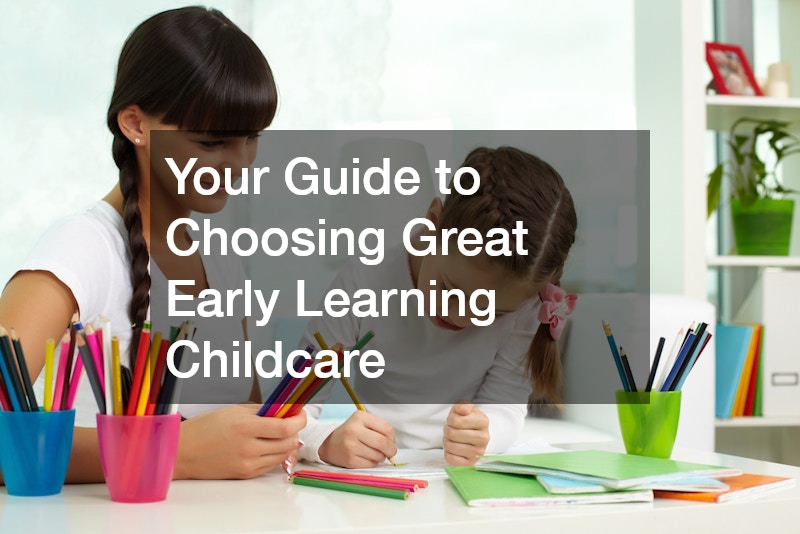Explore how to choose the best early learning childcare for your child and why it’s crucial for their development, particularly in Racine, WI.
What is Early Learning Childcare?
Early learning childcare is an educational service that goes beyond traditional daycare by focusing on the developmental needs of young children. It is designed to support the formative stages of a child’s cognitive, social, and emotional growth, providing a foundation for lifelong learning. Unlike conventional daycare, early learning childcare centers in Racine, WI prioritize structured activities that stimulate early brain development, encouraging curiosity and engagement.
These programs emphasize the critical period between birth to age five when the brain is most receptive to learning. By offering a nurturing environment with age-appropriate curriculums, they cater to the unique learning styles of toddlers and preschoolers. Moreover, early learning childcare provides additional support for parents by instituting a partnership approach, ensuring children receive consistent guidance both at home and in the educational setting.
How to Choose the Right Early Learning Childcare?
When selecting an early learning childcare provider in Racine, WI, parents should consider the program’s accreditation status. Accreditation ensures that the facility meets or exceeds state and national standards for education and safety, offering peace of mind to parents about the quality of care and learning their child will receive. Additionally, parents should evaluate the caregiver-to-child ratio, ensuring that their child will receive adequate attention and support within the program.
It’s also vital to understand the center’s educational philosophy and how it aligns with your family’s values and expectations for your child’s learning experience. Visiting the facility in person can provide valuable insights into the environment, the interactions between staff and children, and the overall atmosphere of the program. Furthermore, by seeing the learning spaces firsthand, parents can envision their child’s day-to-day activities and growth opportunities at the center.
What are the Benefits of Early Learning Programs?
Early learning programs offer numerous cognitive benefits by introducing children to structured learning environments at an early age. These programs employ interactive and play-based methods to facilitate the development of critical skills such as counting, recognizing colors and shapes, and building vocabulary. Through these engaging activities, children in Racine, WI, develop a love for learning that persists well into their formal education years.
Socially, early learning programs provide valuable opportunities for children to interact with peers, teaching them important social skills like sharing, taking turns, and resolving conflicts. These interactions are essential for fostering emotional intelligence and resilience. By learning to navigate various social situations, children build confidence and form friendships, which are crucial components of a happy and productive life.
How Can You Evaluate Childcare Providers?
Evaluating early learning childcare providers requires a thorough consideration of several key factors, starting with a diligent background check of each potential provider. This includes verifying credentials, checking for any recent citations or violations, and confirming their adherence to local and state safety regulations. Understanding the provider’s licensing status is another crucial step in ensuring they operate legally and under proper guidelines.
Next, parents should observe the curriculum and daily schedule offered by the providers, ensuring they align with their expectations for their child’s educational and developmental needs. This includes evaluating the diversity of activities, the focus on developmental milestones, and the adaptability of the curriculum to different learning styles. In Racine, WI, high-quality providers often have a well-documented framework for stimulating a child’s holistic growth through both organized and unstructured activities.
What Questions Should You Ask Potential Providers?
When interviewing potential early learning childcare providers in Racine, WI, it’s important to ask about their staff’s qualifications and experience in early childhood education. This information can offer insights into the level of expertise available at the center and the depth of understanding of developmental milestones. Additionally, inquire about staff turnover rates, as consistency is crucial for young children’s security and emotional health.
Another critical area to explore is the childcare provider’s curriculum and its alignment with your child’s specific needs. Ask how they tailor their educational approaches to accommodate different learning styles and individual children’s interests. Understanding the types of learning environments and materials used can further ensure the center matches your educational goals for your child.
Furthermore, discussing safety measures and emergency preparedness is imperative for parents considering an early learning childcare facility. Inquire about their protocols for accidents or emergencies and how often they conduct safety drills. For families in Racine, WI, knowing that the center prioritizes their child’s safety reassures them of their choice. By asking these targeted questions, parents can make informed decisions that align with their values and their child’s developmental success.
Choosing the right early learning childcare in Racine, WI is a crucial decision that impacts a child’s formative years and lays the foundation for future educational success. Evaluating providers involves understanding the significance of early learning programs, recognizing their developmental benefits, and considering key factors like accreditation and curriculum alignment. Armed with knowledge and the right questions, parents can ensure their choice supports their child’s cognitive, social, and emotional growth, ensuring they are well-prepared for lifelong learning.
.

